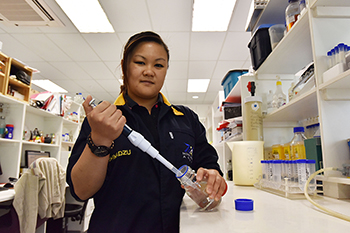Latest News Archive
Please select Category, Year, and then Month to display items
29 March 2021
|
Story Lacea Loader
![]()
1. Its support of and confidence in the leadership of the Rector and Vice-Chancellor of the UFS, Prof Francis Petersen and his team, and duly recognises the efforts and results achieved at the University during the challenges posed by the COVID-19 pandemic, as well as the current nationwide student protest on the payment of student debt.
2. In this context, the Council also distances itself and deplores the statements made by the leadership of the
Institutional Student Representative Council (ISRC), on national television on Monday 15 March 2021, as it pertained to the demand for the immediate resignation of the Rector and Vice-Chancellor, and the statements pertaining to the Chancellor, Prof Bonang Mohale, and Chairperson of the Council, Dr Willem Louw. The Council notes that Mr Katleho Lechoo, President of the ISRC subsequently retracted the utterances.
3. The Council strongly affirms its confidence in the relationship between the leadership of the UFS and the ISRC and expresses its appreciation for the University leadership’s commitment to continuously engage with students about matters of concern to them. The Council furthermore encourages positive and constructive engagement by the ISRC with the University leadership, as this contributes to shared-understanding of the challenges faced by the South African higher education sector and the governance of the UFS.
The impact of personal care products on water resources in the Free State
2015-12-14

Jou-an Chen
Photo: Charl Devenish
|
Water is of the utmost importance in personal hygiene. Most people can hardly have a day go by without taking a shower in the morning and at night. However, it is this very habit that is increasingly polluting the water resources in South Africa.
Contaminants found in pharmaceutical and personal care products have been accumulating in water masses in recent years. These contaminants especially refer to hormones in medication, as well as colouring agents and fragrances used in soap, shampoo and body lotions.
“Little information and data are available on the prevalence of these contaminants, and on how high the level of pollution really is,” says Jou-an Chen, researcher in the Department of Microbial, Biochemical and Food Biotechnology at the UFS.
Her research particularly focuses on the prevalence and impact of those contaminants.
“Because these substances have not been properly investigated, we are not sure how widely it occurs and whether it is harmful to the environment. It was precisely the lack of information that has inspired me to investigate further.”
“If we could identify the contaminants and what it is doing to the environment, it could make a valuable contribution to directives on water quality standards.”